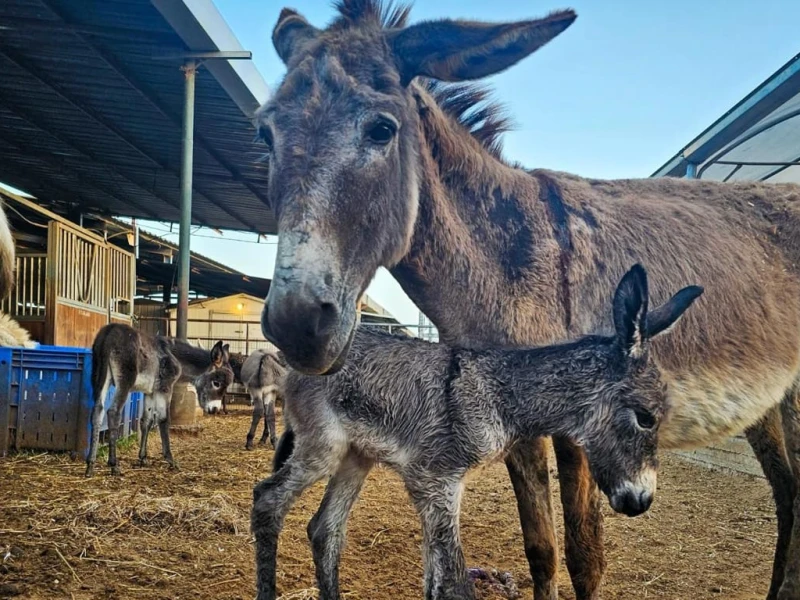A German regional newspaper report on four donkeys “rescued” from Gaza and brought to a sanctuary in Oppenheim has sparked widespread criticism, amid accusations that Germany shows more willingness to admit animals from Gaza than injured or endangered Palestinians.
The Allgemeine Zeitung article, which described the animals as having endured “hunger and misery, beatings and toil,” quickly drew backlash online. The newspaper disabled comments on its Instagram post citing “numerous inappropriate and hateful comments,” many of which reportedly questioned why Germany was admitting donkeys while refusing entry to Gazans facing life-threatening conditions.
Rights advocates and commentators say the episode reflects a broader pattern in Germany’s Gaza policy since October 2023. Despite the severe humanitarian crisis, Berlin has admitted only a handful of Palestinians—mostly those with pre-existing permits.
Even German passport holders trapped in Gaza were not prioritized for evacuation, contrary to the Foreign Ministry’s stated duty to assist citizens in conflict zones.
In contrast, Germany expedited citizenship for several Israeli nationals taken prisoner during military operations in Gaza after October 2023, publicly advocating for their release as “German hostages.”
Several Western countries, including Spain, admitted groups of wounded or sick Gazan children for treatment as early as mid-2024. But Germany is believed to have treated only two minors from Gaza in more than two years.
Local governments in cities such as Berlin, Hamburg, and Bremen had offered to take in larger numbers of injured children, but federal authorities blocked these initiatives, citing “unpredictable regional security,” “complex procedures,” and the need to thoroughly vet accompanying family members.
NGOs facilitating medical evacuation face additional constraints, as they must guarantee that patients and guardians will return to Gaza. If a family later seeks asylum, the NGO must cover all associated legal costs, which can stretch over years.
Analysts say the Allgemeine Zeitung article reflects what they describe as a “double standard” in German media narratives about Gaza.
While the donkeys’ suffering is described in emotional detail, reports on Palestinian civilians rarely highlight the psychological and physical trauma inflicted by months of bombardment and mass displacement.
Human rights groups, including the Palestinian Center for Human Rights (PCHR), have reported widespread torture and abuse of Palestinian detainees by Israeli forces—allegations largely absent from mainstream German coverage.
Critics argue that the empathy extended to rescued animals stands in stark contrast to Germany’s restrictive policy toward vulnerable Gazans.
They question why the government can facilitate the transfer of animals from a war zone while repeatedly blocking or delaying humanitarian entry for human victims of the conflict.


 Prev Post :
Prev Post :
